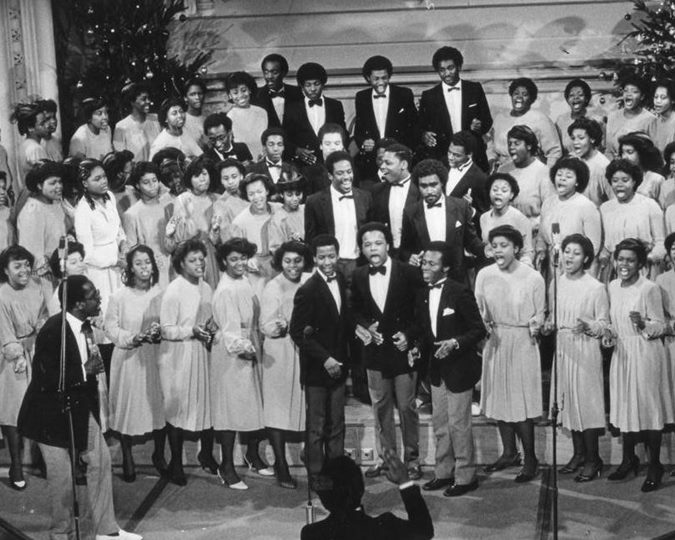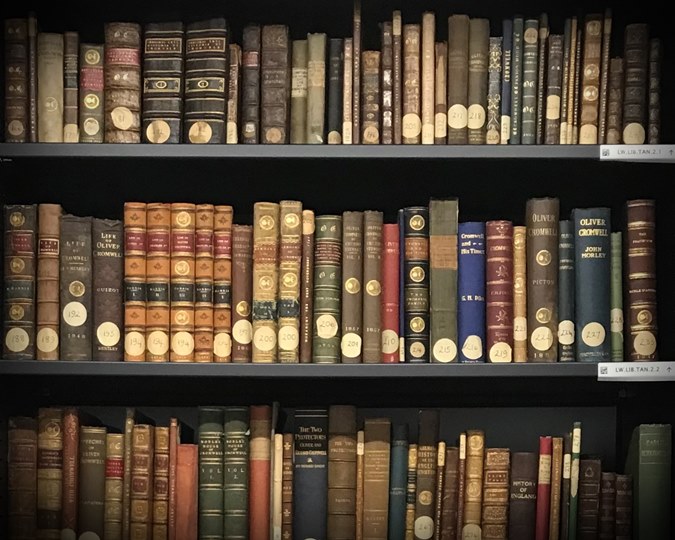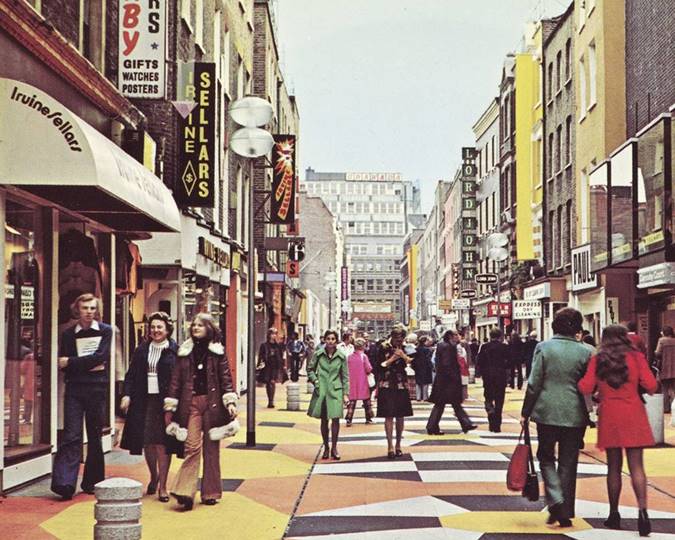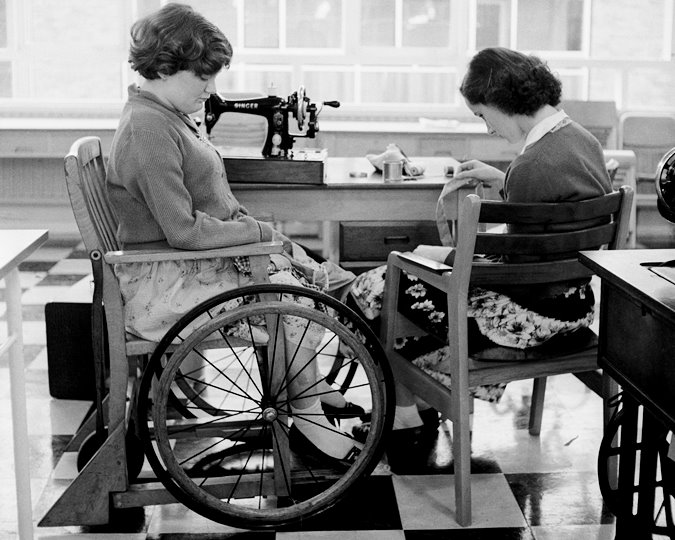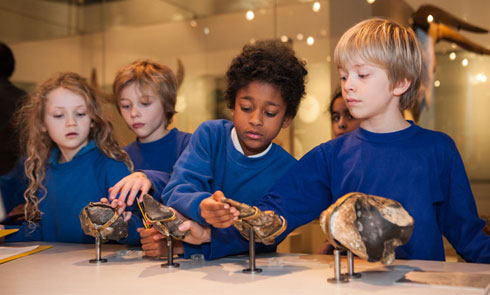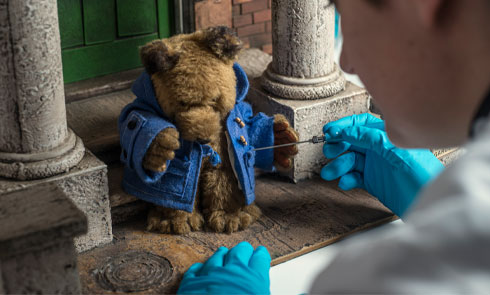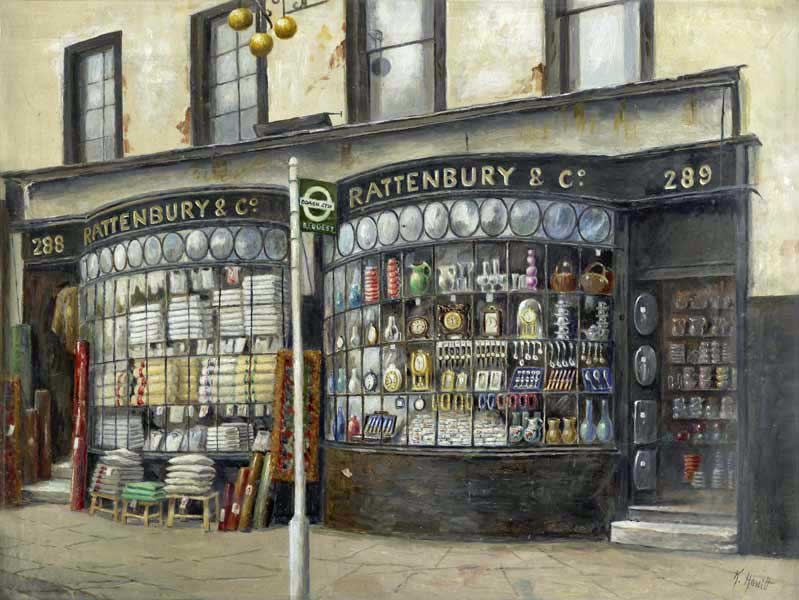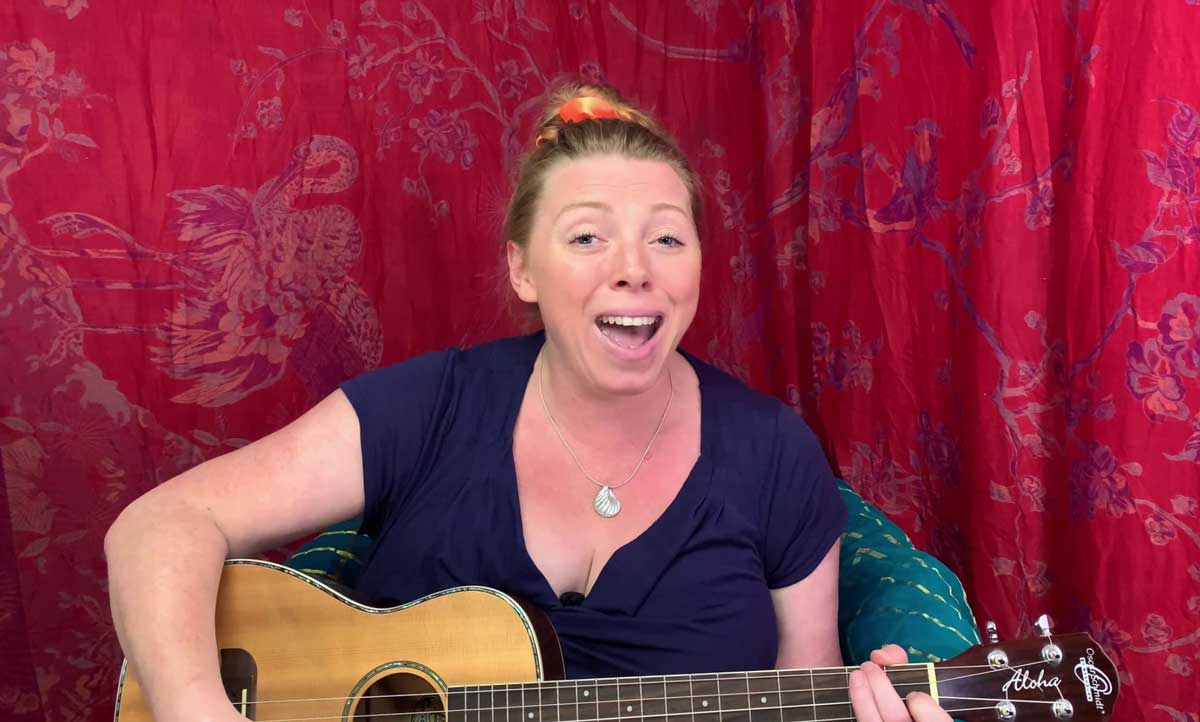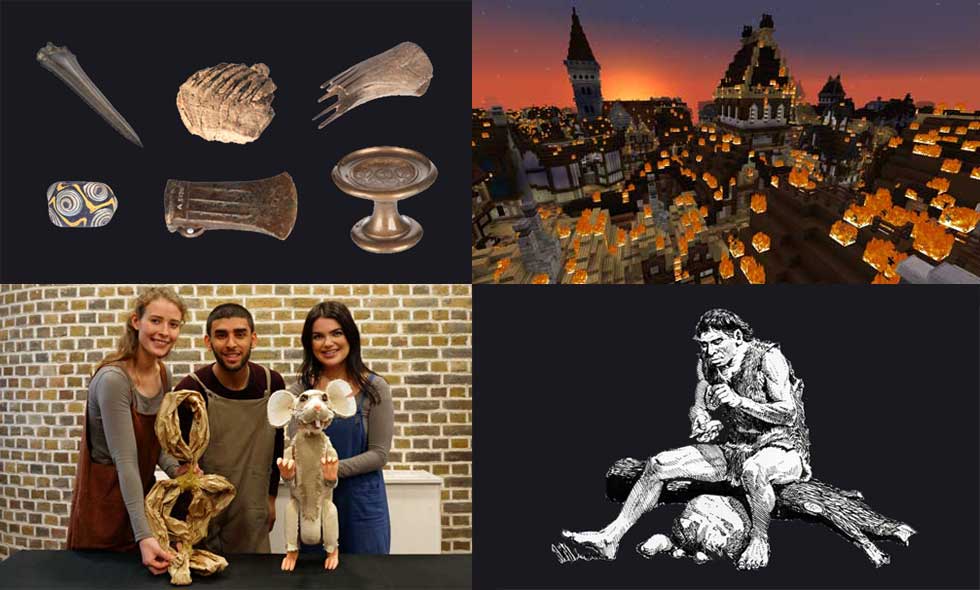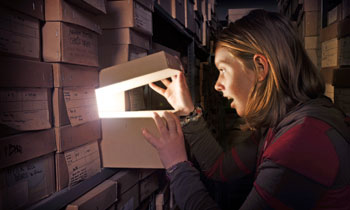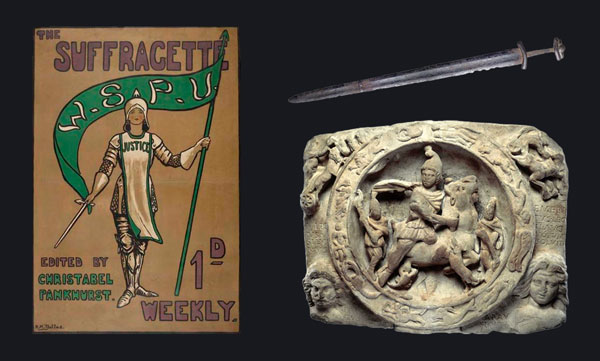Rhymes in Time:
Pop! Goes the Weasel
You probably know this popular nursery rhyme, but what does it mean? What is a ‘weasel’ and why is it popping? Sing along with Paul and then find out more!
You can click here to find a full transcript of this video.
Half a pound of tuppenny rice,
Half a pound of treacle.
That’s the way the money goes –
Pop! Goes the weasel.
Up and down the City Road,
In and out The Eagle.
That’s the way the money goes –
Pop! Goes the weasel.
What's it all about?
This rhyme doesn’t seem to make much sense, does it? There are two main ideas about what it's about, but we can’t be sure which, if either, is right.
The first idea is that the rhyme is written in Cockney rhyming slang – a popular way of speaking in Victorian London’s East End, which people used to disguise what they were saying. In this idea, ‘weasel’ means ‘coat’ and ‘pop’ is all about pawning possessions (which you can find out about lower down).
Other people think that the rhyme is about some of the weavers who lived and worked in an area of East London called Spitalfields. When weaving fabrics, they would use a machine called a ‘weasel’, which made a popping sound.
Try at home!
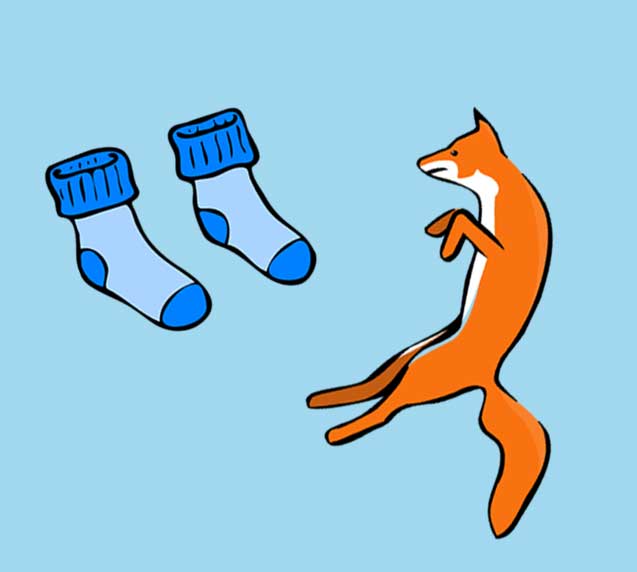
Make a rhyme
Try making your own rhymes. Can you find objects in your home which rhyme with each other? For instance, ‘a pair of socks’, a ‘toy fox’ and ‘two alarm clocks’!
Can you take it in turns to say a word and have someone else think of a word which rhymes with it?
Say them aloud and see how they sound together.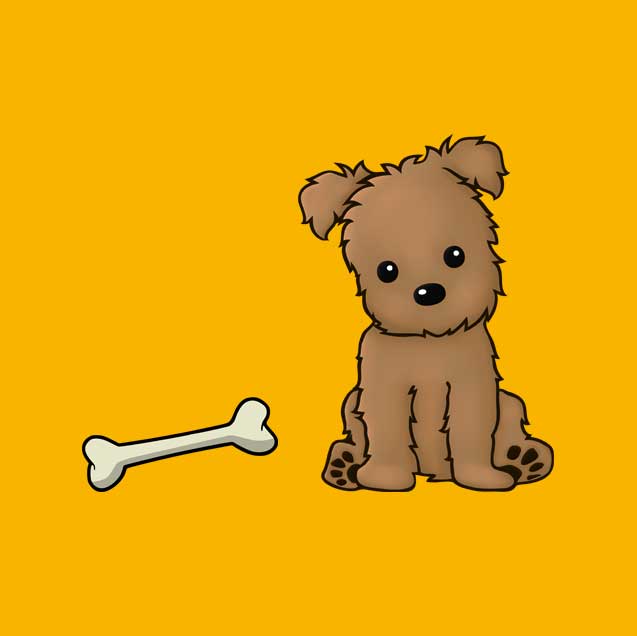
Cockney code
Have a go at making up your own Cockney rhyming slang.
Think of a phrase that rhymes with the word you mean.
Here's one example: ‘phone’ rhymes with the phrase 'dog and bone’. ‘Bone’ can be removed so we just say ‘dog’ when we mean ‘phone’.
Can you make your language harder to master by cutting out the rhyming word?Take a closer look...
A highstreet pop shop
Pawning was when people took their household items (clothes, jewellery, crockery etc) to a pawnbrokers and left them there in return for money. When the person paid back the money, plus a little extra, the pawnbroker gave them their things back. If they didn't pay back the money after a year, the pawnbroker could put the items in the shop window and sell them.
Look at this painting of Rattenbury and Co., a Victorian pawnbrokers.
Can you find the ‘weasel’ – a coat – for sale? (Here’s a hint – try looking in the doorways!)
What else can you see for sale?
You can see the original shop front on display in the Victorian Walk gallery at the Museum of London. Or experience it virtually right now, wherever you are!
Returning from the pawnbroker
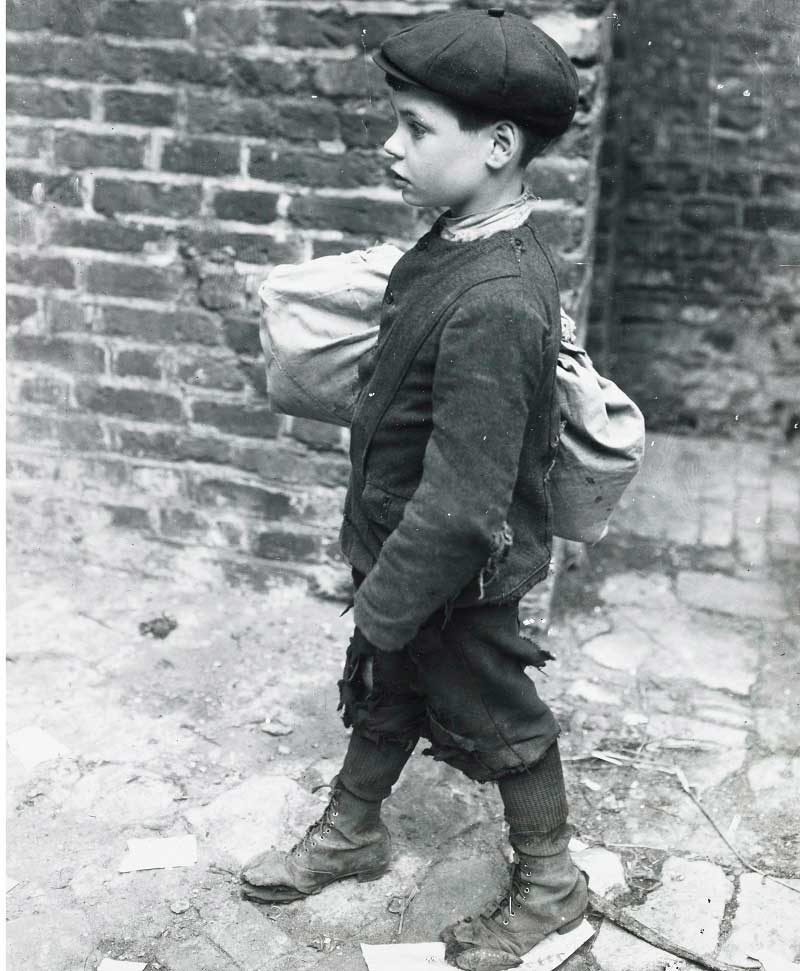
This photo shows a young boy returning from the pawnbroker’s shop with some clothes in a parcel.
Life was very difficult for many Victorian children. Some had to work to earn money for their family, so they could not go to school. There often was not enough money for things like clothing, food or to heat the house. Pawning clothes was one way to get extra money for the family.
What are your 'best' or favourite clothes?
Men’s ankle boots
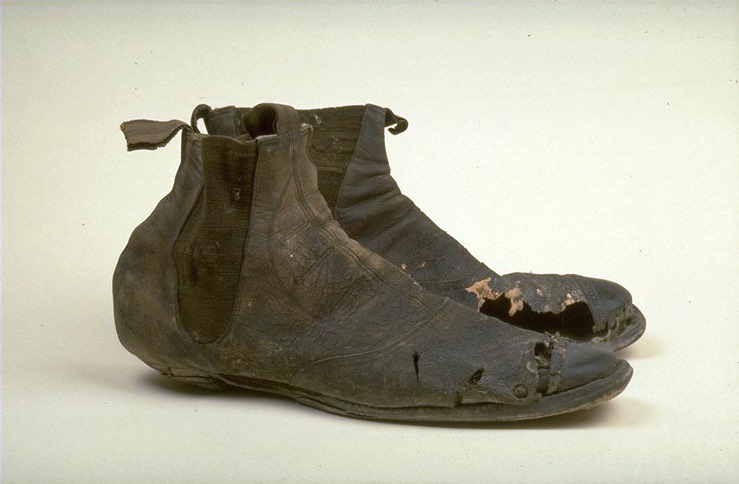
Boots and shoes were very expensive. Some Victorian people were so poor that they had to pawn their shoes. They were forced to go barefoot, even in winter.
Can you imagine that?
Mantua dress

Some people think Pop! Goes the Weasel is all about the weavers who worked in Spitalfields in East London. This magnificent silk gown was likely made by Huguenot weavers for Ann Fanshawe.
Can you imagine wearing something like this?
Do you think it was comfortable to wear?
Investigate more
When did the 'weasel' 'pop'?
This rhyme was written in the 1800s. Many people lived happy lives in London during this time, but others suffered great hardship. London’s population grew rapidly during the 19th century and this led to major problems with overcrowding and poverty.
Can you find out how many people lived in London in the year 1850?
Why does ‘weasel’ mean coat?
Cockney rhyming slang was a secret language people used so that others couldn’t understand what they were saying. It worked by replacing the word they meant with a phrase that rhymed with it. Often, the rhyming word is left out to disguise what was being said even more. An example of this is using ‘apples and pears’ for the word ‘stairs.’ This can then be shortened to just ‘apples’.
In the rhyme, ‘weasel’ is short for ‘weasel and stoat’, which rhymes with coat. So, the person in the rhyme is pawning their coat.
Did you know? Some historians think that the original lyrics didn’t mention a weasel at all. Instead, weasel was originally ‘whistle’. In cockney rhyming slang ‘whistle and flute’ means ‘suit’!
What is tuppenny rice and treacle?
As Paul tells us in the video, tuppenny means ‘two pennies’ which was the cost of one pound of rice pudding at the time. Treacle is the gooey, sugary syrup which could be put on top of rice pudding to make it sweet.
Have you ever tried treacle or rice pudding?
What's your favourite dessert?
Why would a weaver's 'weasel' 'pop'?
In the late 1600s many people called Huguenots left France because they were being treated terribly due to their religion. Lots of them moved to Spitalfields in East London and became silk weavers.
When weaving fabrics, spinners used a ‘weasel’ – a machine that measured out yarn. It made a popping sound when it measured the right amount.
Weaving was difficult and tiring work, so the weavers’ minds might wander or – to put it another way – go ‘Up and down the City Road.' Their dreaming was interrupted whenever the weasel went ‘pop!’
Have you ever tried weaving, sewing or knitting?
Did you use a machine?
What do you think this song means? Is it about pawn shops, weavers, or do you have another idea?
More Rhymes in Time
Watch more performances of classic nursery rhymes and discover the history behind them.
[VIDEO BEGINS]
Hello everyone, and welcome to the Museum of London's Rhymes in Time. My name is Paul and I'm here today to sing with you. So, I hope you've got your singing voices ready.
[00:00:25]
Our rhyme today is called 'Pop! Goes the weasel'. You may have heard this rhyme before, but did you know that some people think that this rhyme uses a secret language called Cockney rhyming slang? If you want to find out more about Cockney rhyming slang, go to the museum's website.
[00:00:53]
Ok! I would like to start by teaching you the actions to this song. So, copy me.
Half a pound of tuppenny rice - that's rice that costs 2p.
Half a pound of treacle - treacle is a sticky, sugary spread which you put on bread.
That's the way the money goes –
Pop! Goes the weasel.
Up and down the City Road - This is City Road, in London.
In and out The Eagle - The Eagle is a pub on the City Road.
That's the way the money goes –
Pop! Goes the weasel.
[00:02:00]
Ok, let's try the whole song together.
♪ Half a pound of tuppenny rice,
Half a pound of treacle.
That's the way the money goes –
Pop! Goes the weasel.
Up and down the City Road,
In and out The Eagle.
That's the way the money goes –
Pop! Goes the weasel. ♪
And now, with the guitar.
[00:02:41]
[GENTLE GUITAR TONES]
♪ Half a pound of tuppenny rice,
Half a pound of treacle.
That's the way the money goes –
Pop! Goes the weasel.
Up and down the City Road,
In and out The Eagle.
That's the way the money goes –
Pop! Goes the weasel. ♪
[00:03:27]
Wonderful! That was 'Pop! Goes the weasel'.
Now, you can write more verses to this song. All you need to do is change the first two lines. Think of something that you buy when you go to the shop. Back in the day, it was tuppenny rice and treacle, but you can sing about anything you like. Also, if you want to find out more about 'Pop! Goes the weasel', including what other people think this song is all about, go to the museum's website. And there you will also find some exciting activities that you can try out.
That's all from me, so thank you very much and bye, bye!
[00:04:22]
[VIDEO ENDS]

